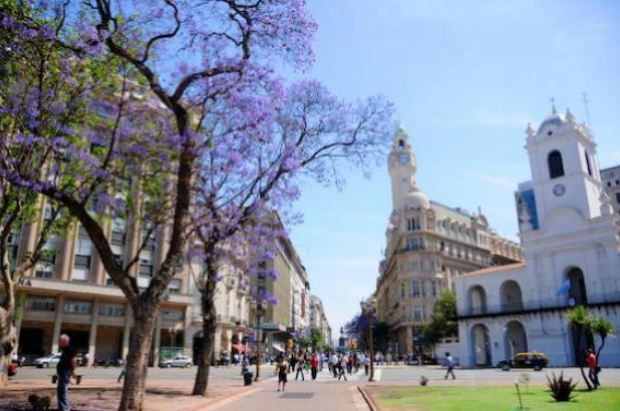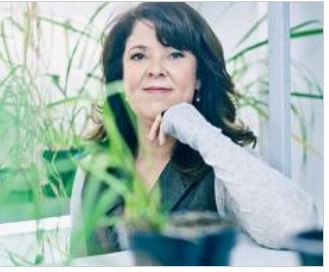
Plaza de Mayo - Cabildo 
Puente en Puerto Madero 
Calle Caminito (La Boca) 
Obelisco de Buenos Aires
|
|
|
|
| |
|
|
|
|
|
|
|
Glaucia
Mendes Souza
|
|
 |
President
FAPESP Bioenergy Research Program BIOEN
Dr. Glaucia Souza
holds a degree from the Biosciences Institute of
University of São Paulo (1988), PhD in
Biochemistry at the Institute of Chemistry (1993),
post-doctorate in molecular genetics at La Jolla Cancer
Research Foundation (1994) and post-doctorate in
molecular genetics at Baylor College of Medicine
(1996).
She is an Associate Professor at the
Institute of Chemistry and leader of the Signal
Transduction Laboratory. Dr. Glaucia Souza is
coordinator of several initiatives in sugarcane
genomics. In 2000 she joined a group of 200 researchers
to sequence and annotate ESTs from sugarcane (SUCEST
Project) as part of FAPESP's Genome Program.
In 2003 she became coordinator of the
project and started the SUCEST-FUN initiative
(http://sucest-fun.org ) composed of a network of
researchers dedicated to the functional analysis of the
sugarcane genes and identification of genes associated
with traits of agronomic interest.
|
|
The activities of her
group focus on the Transcriptome analysis, generation of
transgenic plants and studies related to the
investigation of regulatory and signaling networks.
Genes associated with sucrose content, biomass,
tolerance to drought, phosphate deficiency, herbivory,
interactions with endophytic bacteria, climate change,
sugars and hormones have been identified.
Since 2003 she carries out research in collaboration
with the private sector to change the energy metabolism
of sugar cane and its potential to produce biofuels. In
2007 the initiative SUCEST-FUN progressed to the
formation of a research network linked to sugarcane
breeding programs in the country. The group aims to use
biotechnology tools to increase the sucrose content,
change the quality and quantity of fiber, develop
drought tolerant plants, identify molecular markers and
promoters. Dr. Souza is developing the SUCEST-FUN
database and bioinformatics tools for the integration of
agronomic and molecular data for sugarcane and energy
cane.Dr. Souza coordinates the FAPESP Bioenergy
Research Program BIOEN (http://bioenfapesp.org). BIOEN
aims at articulating public and private R&D, in
academic and industrial laboratories, to advance and apply
knowledge in fields related to bioenergy. Research ranges
from biomass production and processing to biofuel
technologies, biorefineries and sustainability.
Dr. Souza is the Chairperson of the SCOPE Bioenergy &
Sustainability project. Under the leadership of
researchers associated to the FAPESP Bioenergy Research
Program (BIOEN-FAPESP) in collaboration with colleagues
from several countries, she led a global scientific
evaluation on Bioenergy & Sustainability under the
aegis of the Scientific Committee on Problems of the
Environment (SCOPE – www.scopeenvironment.org). They used
the SCOPE RAP (Rapid Assessment Project) concept, and the
final workshop was held at UNESCO premises in Paris, in
December 2013 to discuss bioenergy in the context of
Energy Security, Food Security, Environmental Security,
Climate Security, Sustainable Development and Innovation.
Over 100 top-level scientists from 81 institutions in 24
countries were involved in the process
(http://bioenfapesp.org/scopebioenergy/index.php)
resulting in a 700-page synthesis of knowledge volume and
a policy brief describing current status, latest
developments on bioenergy production and use and policy
recommendations for the sustainable expansion of bioenergy
in the world. The project involves contributions from 137
experts from 24 countries.
She is an Eisenhower Fellow since 2009. She supervises
students under the Graduate Program in Biochemistry, the
Bioinformatics Program, the International USP Postgraduate
Program in Cellular and Molecular Biology (Plant Biology)
and the USP-UNICAMP-UNESP Integrated Bioenergy PhD
Program. |
|
|
|
|
|
|
|
|
|
|
|
|
|
|